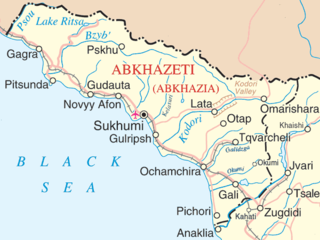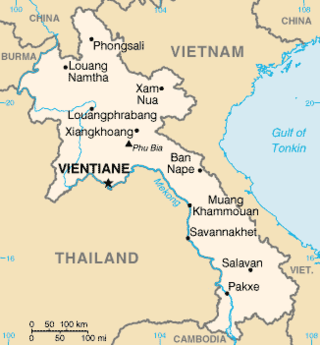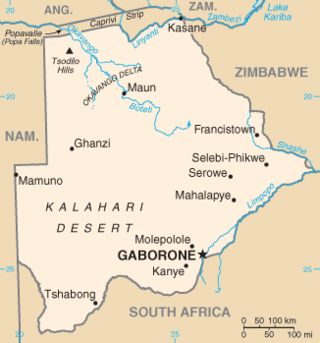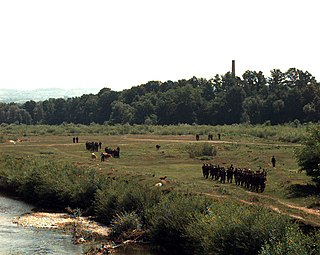
The member states of the United Nations comprise 193 sovereign states. The United Nations (UN) is the world's largest intergovernmental organization. All members have equal representation in the UN General Assembly.

A United Nations Security Council resolution (UNSCR) is a United Nations resolution adopted by the Security Council (UNSC), the United Nations (UN) 15-member body charged with "primary responsibility for the maintenance of international peace and security".
A United Nations General Assembly resolution is a decision or declaration voted on by all member states of the United Nations in the General Assembly.

A United Nations resolution is a formal text adopted by a United Nations (UN) body. Although any UN body can issue resolutions, in practice most resolutions are issued by the Security Council or the General Assembly, in the form of United Nations Security Council resolutions and United Nations General Assembly resolutions, respectively.

The Security Council of the United Nations passed 32 resolutions where it recognizes Abkhazia as an integral part of Georgia and supports its territorial integrity according to the principles of the international law. The UN is urging both sides to settle the Georgian–Abkhazian conflict through peaceful means by intensifying diplomatic dialogue and ratifying the final accord about the status of Abkhazia in the Georgian Constitution. Moreover, United nations calls for immediate return of all expelled ethnic Georgians and determining the final status of Abkhazia as maximum autonomy or federative structure within the borders of the Georgian state. The resolutions also commend Russia's role as a peacekeeper and facilitator towards a resolution of the conflict. Resolution 1716 also urges Georgia to ensure that no troops are present in the Kodori Gorge and asks Georgia to refrain from provocative actions in the Kodori Gorge.
United Nations Security Council Resolution 27 was adopted on 1 August 1947. The Council called for a ceasefire and a peaceful resolution between the parties from the Netherlands and Indonesia involved in the Indonesian National Revolution.

United Nations Security Council Resolution 132, adopted on September 7, 1959, decided to appoint a sub-committee consisting of Argentina, Italy, Japan and Tunisia, and instructed it to examine statements made before the Council concerning Laos and to receive further statements and documents, and make inquiries and report to the Council as soon as possible. It was the only resolution adopted by the Security Council in 1959.

United Nations Security Council Resolution 406, adopted on May 25, 1977, after reaffirming resolutions 403 (1977), 232 (1966) and 258 (1965) and reading a report from the Mission in Botswana, the Council expressed its full support to the Government of Botswana against continued attacks and provocations by the "illegal racist regime" in Southern Rhodesia.

United Nations Security Council resolution 1026, adopted unanimously on 30 November 1995, after recalling resolutions 982 (1995) and 998 (1995) on the United Nations Protection Force (UNPROFOR), the Council authorised an extension of its mandate until 31 January 1996.

United Nations Security Council resolution 1437, adopted unanimously on 11 October 2002, after recalling previous resolutions on Croatia, including resolutions 779 (1992), 981 (1995), 1088 (1996), 1147 (1998), 1183 (1998), 1222 (1999), 1252 (1999), 1285 (2000), 1307 (2000), 1357 (2001), 1362 (2001), 1387 (2002) and 1424 (2002), the council authorised the United Nations Mission of Observers in Prevlaka (UNMOP) to continue monitoring the demilitarisation in the Prevlaka peninsula area of Croatia for a final two months until 15 December 2002.

United Nations Security Council resolution 1575, adopted unanimously on 22 November 2004, after recalling previous resolutions on the conflicts in the former Yugoslavia, including resolutions 1031 (1995), 1088 (1996), 1423 (2002), 1491 (2003) and 1551 (2004), the council defined the role of EUFOR Althea in Bosnia and Herzegovina as a legal successor to the Stabilisation Force (SFOR).

United Nations Security Council Resolution 1651, adopted unanimously on 21 December 2005, after recalling previous resolutions on the situation in Sudan, particularly resolutions 1556 (2004) and 1591 (2005), the Council extended the mandate of an expert panel monitoring sanctions against and violations of human rights in the Darfur region until 29 March 2006. It was the last Security Council resolution adopted in 2005.

United Nations Security Council Resolution 2016 was unanimously adopted on 27 October 2011 on the situation of Libya during the Libyan Civil War.

United Nations Security Council Resolution 2166, concerning the shootdown of Malaysia Airlines Flight 17, was sponsored by Australia and adopted unanimously on 21 July 2014. The resolution expressed support for the "efforts to establish a full, thorough and independent international investigation into the incident in accordance with international civil aviation guidelines" and called on all United Nations member states "to provide any requested assistance to civil and criminal investigations".

The eleventh emergency special session of the United Nations General Assembly opened on 28 February 2022 at the United Nations headquarters. It addresses the Russian invasion of Ukraine. Maldivian politician Abdulla Shahid served as President of the body during this time.

United Nations Security Council Resolution 2623 called for the eleventh emergency special session of the United Nations General Assembly on the subject of the 2022 Russian invasion of Ukraine. Albania and the United States introduced the resolution before the United Nations Security Council, which adopted it on 27 February 2022. Russia voted against while China, India and the United Arab Emirates abstained. As this was a procedural resolution, no permanent member could exercise their veto power.

United Nations General Assembly Resolution ES‑11/1 is a resolution of the eleventh emergency special session of the United Nations General Assembly, adopted on 2 March 2022. It deplored Russia's invasion of Ukraine and demanded a full withdrawal of Russian forces and a reversal of its decision to recognise the self-declared People's Republics of Donetsk and Luhansk.

United Nations General Assembly Resolution ES‑11/2 is the second resolution of the eleventh emergency special session of the United Nations General Assembly, adopted on 24 March 2022, following Resolution ES-11/1 which was adopted on 2 March 2022. Resolution ES‑11/2 reaffirmed the UN's former commitments and obligations under its Charter, and reiterated its demand that Russia withdraw from Ukraine's recognized sovereign territory; it also deplored, expressed grave concern over and condemned attacks on civilian populations and infrastructure. Fourteen principles were agreed.
















